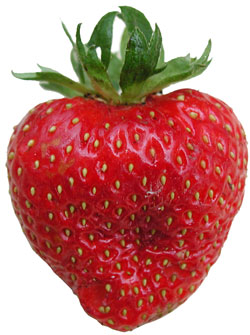
Whether you’re a parent or an educator, you know that getting kids to eat well is a challenge. Getting them to truly understand enough to care about what they eat can be even harder. But did you know that the subject of "health literacy" is an important element of the national education conversation? While the debate continues as to the extent of the role of education in teaching nutrition, there is little argument that we as educators truly do have a responsibility in helping our nation’s young people understand and take charge of their well-being.
Focusing the story on nutrition and the brain, here is a fun way to talk about "brain foods" with your young folks—that may give you a little insight, too.
What if students were challenged to formulate meals to affect specific systems of the body? Here’s an example: The "Brainiac Blue Plate Combo"—the ultimate brain-health meal.
Start with two slices of whole-grain bread for carbohydrates; these will get converted into glucose to power the brain’s electrical activity. (Did you know that the brain uses about 20% of our total energy every day?) To that, we might add some lean turkey, roast beef and tuna fish (mmmm!) to supply the proteins and fats that make up the basic building blocks of our neural tissues. Then, we could top it all off with a light smattering of cheese and serve it with a side of roasted potatoes and a banana to give it the perfect zinging balance of neurotransmitters, from aspartic acid to tyrosine.
Now, whether this meal might not appeal to a youngster’s gastric sensibilities, the activity of creating such a menu would be an engaging application of knowledge to a practical task, as well as a way to have some fun in the process. Let them offer their ideas in a "cooking class" setting with all the supporting scientific explanations, and you’ve introduced presentation skills into the lesson. (It goes without saying that kids would not be able to resist the "gross-out" potential of such an activity—especially if you allow them to actually make and serve such a meal.)
For more great facts and information on neuroscience and nutrition for kids, check out Dr. Eric H. Chudler’s site, Nutrition and the Brain.

